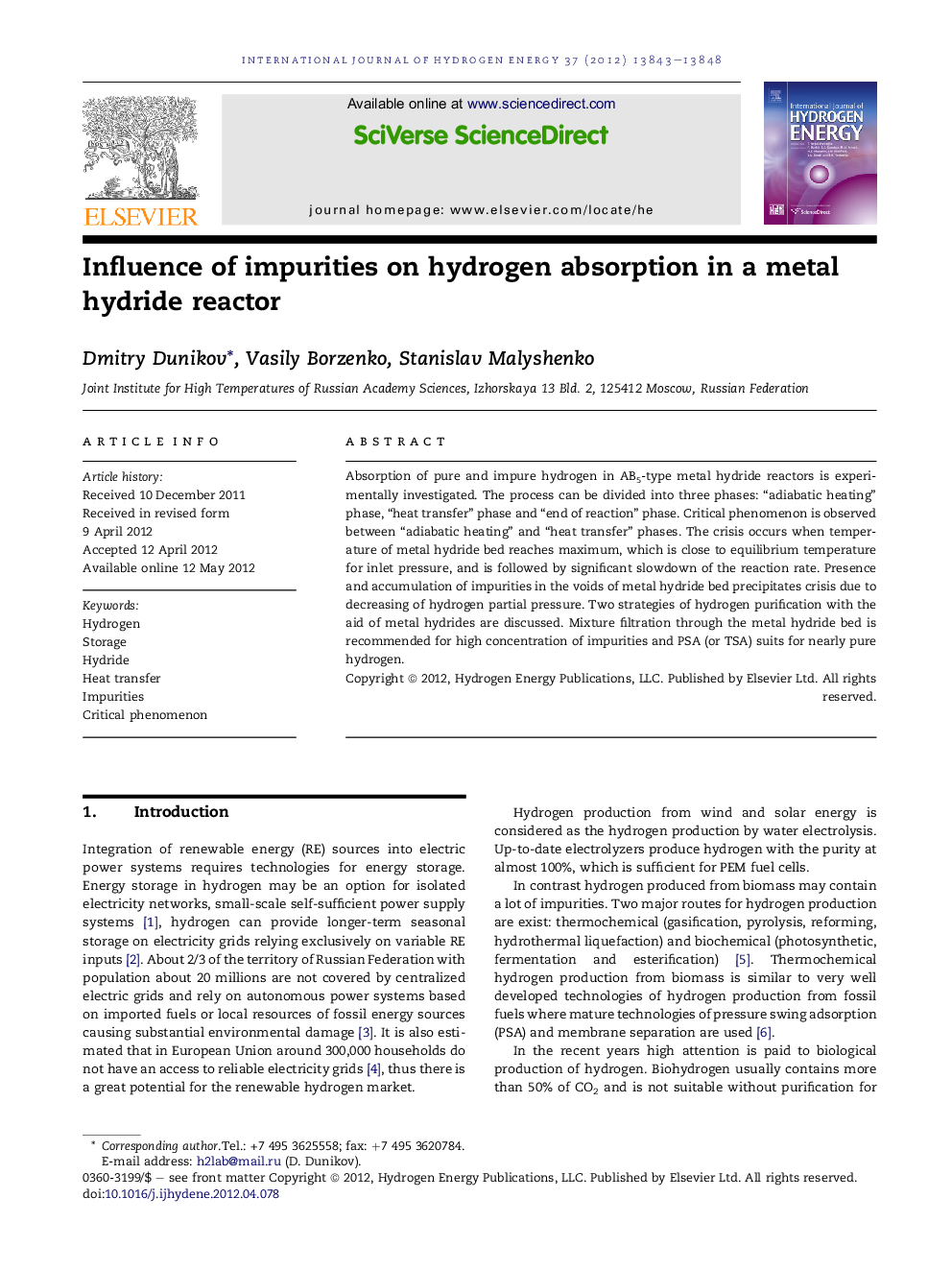| Article ID | Journal | Published Year | Pages | File Type |
|---|---|---|---|---|
| 1282291 | International Journal of Hydrogen Energy | 2012 | 6 Pages |
Absorption of pure and impure hydrogen in AB5-type metal hydride reactors is experimentally investigated. The process can be divided into three phases: “adiabatic heating” phase, “heat transfer” phase and “end of reaction” phase. Critical phenomenon is observed between “adiabatic heating” and “heat transfer” phases. The crisis occurs when temperature of metal hydride bed reaches maximum, which is close to equilibrium temperature for inlet pressure, and is followed by significant slowdown of the reaction rate. Presence and accumulation of impurities in the voids of metal hydride bed precipitates crisis due to decreasing of hydrogen partial pressure. Two strategies of hydrogen purification with the aid of metal hydrides are discussed. Mixture filtration through the metal hydride bed is recommended for high concentration of impurities and PSA (or TSA) suits for nearly pure hydrogen.
► Critical phenomenon slows hydrogen sorption rate in metal hydride bed. ► Crisis is connected with insufficient heat transfer and presence of impurities. ► Impurities have to be removed from voids of metal hydride bed. ► Flow-through technique is preferable for hydrogen-poor feed gas. ► With metal hydrides hydrogen recovery higher than 95% can be achieved.
